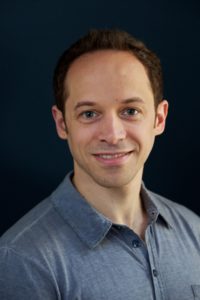
You’re not a “doctor” — you’re a pediatrician, an anesthesiologist, an oncologist.
You’re not a “lawyer” — you practice family law, or bankruptcy, or criminal law.
You’re not an “engineer” — you’re an electrical engineer who specializes in solar technologies, or a civil engineer who specializes in the application of artificial intelligence in highway traffic design.
Specialization is beneficial and necessary, but specializing too early in life or too narrowly can also have drawbacks. According to today’s podcast guest, New York Times bestselling author David Epstein, overspecialization can stifle innovation if we’re all digging in parallel trenches. Sampling a broad range of subjects prior to specializing (e.g. at the undergraduate level, or as a hobby) allows people to make connections between far-flung domains and ideas.
If you’re an athlete, spend your childhood playing a variety of sports before you commit to the one you’d like to develop.
If you’re a musician, try learning different instruments before you pick your primary focus.
If you’re bound for a graduate degree in a STEM field, consider a multidisciplinary undergraduate that pulls from chemistry, physics, biology and perhaps even art. Specialization can come later.
We hear stories of people who specialized early in life. Tiger Woods won his first golf competition at age two, beating everyone in the age-10-and-under category. Many world chess champions started training in early childhood. The notion is that early specialization provides a headstart; if you haven’t started training at chess or golf by age 12, it might be too late.
But chess and golf are limited in their scope. They’re contained games with fixed, predictable rules.
In the wider world, in which challenges and assumptions fluctuate and problems are ill-defined, being a generalist is a lifehack. It can help people make interdisciplinary connections and problem-solve across a wide range of experiences. Specializing too early in life can be detrimental, and feeling “stuck” in a poorly-matching career due to the fear of transitioning or switching can be counterproductive. Most disciplines have transferable skills, and past experience in a different field can enhance your performance in your second-act career.
Epstein joins us on the Afford Anything podcast to discuss why high-level, broad, conceptual and transferable thinking is more useful than specialization.
Thanks to our sponsors!
Capterra
Capterra is the leading, free online resource to help you find the best software solution for your business needs. With over 950,000 reviews of products from real users, you can easily find the right tools to make this year the year for your business. Visit capterra.com/paula today to get started!
Freshbooks
Save time by using Freshbooks, an easy-to-use, cloud-based accounting system that takes the stress and hassle out of bookkeeping and, especially, invoicing. You can create an invoice in a few seconds, and Freshbooks’ automated system will handle the rest. Visit Freshbooks.com/paula for a free 30-day trial. Please mention this show when they ask how you heard about them.
ShipStation
ShipStation is a centralized platform where you can process shipping orders. They have shipping labels for all the top carriers, and they offer deep discounts on shipping. Try ShipStation for free for 30 days and get an additional month free if you use my promo code Paula. Click this link, then click on “heard our ad?” on the top right of the screen, and type Paula.
Blinkist
Busy, but love to read and learn? Blinkist is the only app that takes the best key takeaways from thousands of nonfiction books and condenses them down into just 15 minutes. You can start a free 7-day trial when you join at blinkist.com/paula.